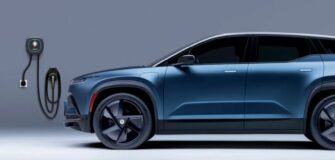Fueled by the Expansion of Electric Vehicles, China Surpasses Japan as the Largest Auto Exporter

In a remarkable shift driven by the rapid expansion of the electric vehicle (EV) market, China has emerged as the world’s largest auto exporter, overtaking Japan. This milestone underscores China’s position as a global automotive powerhouse and highlights the transformative influence of electric mobility on the industry.
The Rise of Electric Vehicles in China:
The ascent of electric vehicles in China has been nothing short of meteoric. With a concerted focus on innovation, infrastructure development, and policy support, China has fostered an environment conducive to the growth of the EV sector. This strategic approach has not only reduced the nation’s carbon footprint but also propelled its automotive industry to new heights.
China’s leadership recognized early on the potential of electric vehicles to address urban air quality concerns and reduce dependence on imported oil. Subsequently, the government introduced a series of incentives to encourage the production, sale, and adoption of electric cars. These incentives included subsidies, tax breaks, and preferential treatment in license plate lotteries, all of which fueled a surge in demand for EVs.
Global Electric Vehicle Market Dynamics:
As China embraced electric vehicles, it carved out a prominent position in the global EV market. The combination of a large domestic market, robust manufacturing capabilities, and a growing ecosystem of EV-related technologies allowed Chinese automakers to scale up production and refine their offerings.
Moreover, China’s focus on electric vehicles coincided with a broader global shift towards sustainable transportation. Stringent emissions regulations in various countries encouraged consumers to consider electric alternatives, aligning with China’s proactive stance on EVs.
Impact on Export Landscape:
China’s rise as the largest auto exporter is emblematic of its transformative role in the automotive industry. The surge in electric vehicle production has enabled Chinese automakers to diversify their product portfolios, catering not only to domestic demand but also to international markets.
Traditional auto-exporting countries like Japan now find themselves navigating a changing landscape. The transition to electric mobility requires strategic adaptations, and automakers worldwide are recalibrating their strategies to remain competitive in this rapidly evolving sector.
Challenges and Opportunities:
While China’s achievement is impressive, it also brings challenges and opportunities to the forefront. The global auto industry is undergoing a paradigm shift, with electric vehicles at the helm. However, sustaining growth and maintaining a competitive edge will require continued investments in research and development, charging infrastructure, and supply chain optimization.
China’s success story serves as a valuable lesson for other countries looking to bolster their auto industries through electric mobility. Collaborations between governments, industries, and academia are pivotal in driving innovation, fostering sustainable growth, and achieving climate goals.
The ascent of China as the largest auto exporter, fueled by the expansion of electric vehicles, marks a pivotal moment in the evolution of the global automotive industry. The transition to electric mobility has not only reshaped the way vehicles are manufactured and consumed but has also redefined the competitive landscape.
As the world embraces the promise of electric vehicles to reduce emissions and enhance sustainability, China’s success offers a glimpse into the potential of visionary policies, technological advancements, and a steadfast commitment to shaping a cleaner, more efficient future on the roads.









